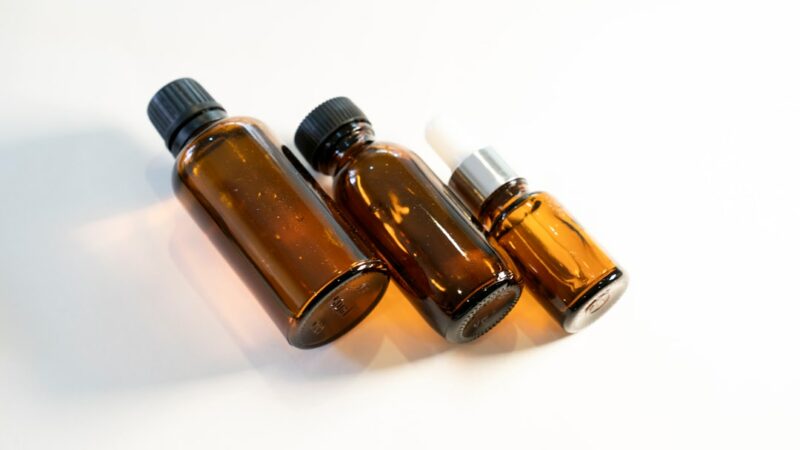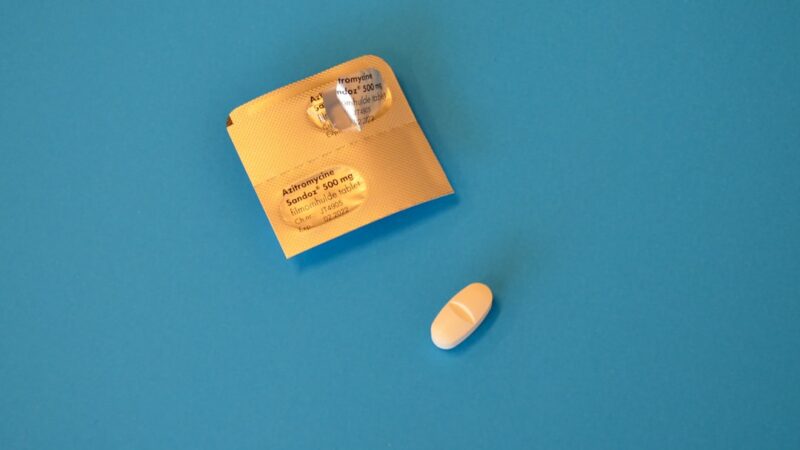Can Coconut Water Go Bad?: Tips to Ensure Freshness and Avoid Waste

Coconut water has gained immense popularity in recent years as a refreshing and healthy beverage. It is the clear liquid found inside young, green coconuts and has been consumed for centuries in tropical regions. However, it wasn’t until the early 2000s that coconut water started to gain global recognition as a popular health drink.
The rise of coconut water as a popular health drink can be attributed to its numerous health benefits. It is low in calories, fat-free, and cholesterol-free, making it an excellent choice for those looking to maintain a healthy lifestyle. Coconut water is also rich in electrolytes such as potassium, magnesium, and calcium, which are essential for hydration and muscle function.
Understanding the shelf life of coconut water is crucial for consumers to ensure that they are consuming fresh and safe products. As with any perishable food or beverage, coconut water can spoil if not stored properly or consumed within a certain timeframe. Therefore, it is important to be aware of the signs of spoilage and how to prolong the shelf life of coconut water.
Table of Contents
Key Takeaways
- Coconut water is a popular beverage due to its health benefits and refreshing taste.
- The shelf life of coconut water varies depending on factors such as processing and packaging.
- Signs of spoilage in coconut water include a sour smell, off taste, and cloudiness.
- Factors that affect coconut water’s freshness include temperature, light exposure, and air exposure.
- Proper storage, such as refrigeration and using airtight containers, can prolong coconut water’s shelf life.
Understanding the Shelf Life of Coconut Water
Shelf life refers to the length of time that a product can be stored before it becomes unfit for consumption. For coconut water, its shelf life can vary depending on several factors. These factors include the quality of the coconut water, the processing methods used, and the storage conditions.
One of the most important factors that affect coconut water’s shelf life is its exposure to light and air. Light and air can cause oxidation, which can lead to a change in taste and quality of the coconut water. Therefore, it is essential to store coconut water in opaque containers or packaging that blocks out light and seals tightly to prevent air exposure.
Temperature also plays a significant role in determining the shelf life of coconut water. High temperatures can accelerate spoilage and cause bacterial growth, while low temperatures can slow down the deterioration process. It is recommended to store coconut water in a cool, dark place, away from direct sunlight and heat sources.
Checking expiration dates is crucial when it comes to ensuring the freshness and safety of coconut water. Expiration dates indicate the date until which the product is guaranteed to be of high quality and safe for consumption. Consuming coconut water past its expiration date can increase the risk of consuming spoiled or contaminated product.
Signs of Spoilage: How to Tell if Coconut Water Has Gone Bad
It is important to be able to identify the signs of spoilage in coconut water to avoid consuming a product that may be harmful to health. There are several physical signs that indicate coconut water has gone bad. These include changes in color, presence of mold or particles, and an off-putting texture.
Fresh coconut water should have a clear, slightly cloudy appearance. If the coconut water appears discolored or has a cloudy or murky appearance, it is a sign that it has spoiled. Additionally, if you notice any mold or particles floating in the coconut water, it is best to discard it as it may be contaminated.
Changes in taste and smell are also indicators of spoilage in coconut water. Fresh coconut water has a slightly sweet and nutty taste. If the taste becomes sour, bitter, or off-putting, it is a sign that the coconut water has gone bad. Similarly, if you detect any foul or rancid odor coming from the coconut water, it is best to avoid consuming it.
Consuming spoiled coconut water can lead to foodborne illnesses such as stomach cramps, diarrhea, and vomiting. It is important to prioritize food safety and discard any coconut water that shows signs of spoilage.
Factors that Affect Coconut Water’s Freshness
Several factors can affect the freshness of coconut water. As mentioned earlier, exposure to light and air can cause oxidation and lead to a change in taste and quality. Therefore, it is important to store coconut water in opaque containers or packaging that blocks out light and seals tightly to prevent air exposure.
Temperature is another crucial factor that affects the freshness of coconut water. High temperatures can accelerate spoilage and bacterial growth, while low temperatures can slow down the deterioration process. It is recommended to store coconut water in a cool, dark place, away from direct sunlight and heat sources.
The processing methods used can also impact the freshness of coconut water. Some brands use pasteurization or high-pressure processing (HPP) to extend the shelf life of their products. These methods help to kill bacteria and extend the freshness of the coconut water. It is important to choose reputable brands that prioritize quality and safety in their processing methods.
Proper Storage: Tips for Prolonging Coconut Water’s Shelf Life
Proper storage is essential for prolonging the shelf life of coconut water. Here are some tips to ensure that your coconut water stays fresh for longer:
1. Storing in a cool, dark place: As mentioned earlier, storing coconut water in a cool, dark place away from direct sunlight and heat sources can help prolong its shelf life. A pantry or cupboard is an ideal location for storing coconut water.
2. Keeping coconut water sealed: It is important to keep the container or packaging of coconut water tightly sealed to prevent air exposure. This will help prevent oxidation and maintain the freshness of the coconut water.
3. Avoiding exposure to air: When pouring coconut water into a glass or container, it is best to pour only the amount you intend to consume and immediately seal the remaining coconut water. This will minimize air exposure and help preserve its freshness.
By following these storage tips, you can ensure that your coconut water stays fresh and safe for consumption for a longer period of time.
Can You Freeze Coconut Water?

Freezing coconut water is an option if you want to prolong its shelf life. However, there are pros and cons to freezing coconut water that should be considered.
One of the advantages of freezing coconut water is that it can extend its shelf life for several months. Freezing slows down the deterioration process and helps to maintain the freshness of the coconut water. This can be beneficial if you have a large quantity of coconut water that you want to preserve for future use.
However, freezing coconut water can also affect its taste and texture. When frozen, coconut water may separate and become slightly grainy or watery upon thawing. This can alter the overall quality and taste of the coconut water. It is important to note that freezing coconut water is not recommended if you are looking to maintain its original taste and texture.
If you decide to freeze coconut water, it is important to follow proper freezing methods. Pour the coconut water into a freezer-safe container, leaving some space at the top for expansion. Seal the container tightly and label it with the date of freezing. When thawing, place the container in the refrigerator overnight or run it under cold water until it reaches a liquid state.
Ways to Use Expired Coconut Water
If you find yourself with expired coconut water, there are still ways to make use of it without wasting it. However, it is important to check for signs of spoilage before using expired coconut water to ensure that it is safe for consumption.
One way to use expired coconut water is by incorporating it into smoothies or cocktails. The slightly altered taste and texture of expired coconut water may not be noticeable when blended with other ingredients. It can add a subtle hint of coconut flavor and provide hydration in your favorite beverages.
Expired coconut water can also be used in cooking or baking. It can be used as a substitute for regular water in recipes that call for liquid ingredients. Coconut water can add a unique flavor profile to dishes such as rice, soups, curries, and desserts. However, it is important to taste the expired coconut water before using it in cooking or baking to ensure that it has not turned sour or rancid.
It is crucial to exercise caution when using expired coconut water and to discard it if there are any signs of spoilage. Consuming spoiled coconut water can lead to foodborne illnesses and should be avoided.
How to Prevent Wasting Coconut Water
To prevent wasting coconut water, there are several steps you can take:
1. Buying in smaller quantities: If you find that you often have leftover coconut water that goes to waste, consider buying smaller quantities. This will ensure that you are able to consume the coconut water before it reaches its expiration date.
2. Using before expiration date: It is important to prioritize consuming coconut water before its expiration date. By checking the expiration dates and planning your consumption accordingly, you can avoid wasting any leftover coconut water.
3. Sharing with friends or family: If you have excess coconut water that you are unable to consume before it expires, consider sharing it with friends or family. This way, you can prevent wastage and ensure that the coconut water is enjoyed by others.
By implementing these strategies, you can minimize waste and make the most out of your coconut water purchase.
Buying Coconut Water: What to Look for to Ensure Freshness
When buying coconut water, there are several factors to consider to ensure its freshness and quality:
1. Checking expiration dates: Always check the expiration dates on the packaging of coconut water before making a purchase. Choose products with a longer shelf life to ensure that you have ample time to consume the coconut water before it expires.
2. Looking for signs of spoilage: Inspect the packaging for any signs of damage or leakage. Avoid purchasing products with dented or bulging containers, as this may indicate spoilage or contamination.
3. Choosing reputable brands: Opt for reputable brands that prioritize quality and safety in their products. Look for brands that use high-quality coconuts and employ proper processing methods to ensure the freshness and purity of their coconut water.
By being mindful of these factors, you can make informed choices when purchasing coconut water and ensure that you are getting a fresh and safe product.
Enjoying Fresh and Safe Coconut Water
In conclusion, understanding the shelf life of coconut water is crucial for consumers to ensure that they are consuming fresh and safe products. Factors such as exposure to light and air, temperature, and processing methods can affect the freshness of coconut water. By storing coconut water properly, checking expiration dates, and being aware of the signs of spoilage, you can enjoy coconut water at its best.
If you find yourself with expired coconut water, there are still ways to make use of it without wasting it. However, it is important to check for signs of spoilage before using expired coconut water to ensure that it is safe for consumption. By following proper storage methods, buying in smaller quantities, and sharing with others, you can prevent wastage and make the most out of your coconut water purchase.
By being mindful of these tips and guidelines, you can enjoy fresh and safe coconut water while reaping its numerous health benefits. Stay hydrated and refreshed with this tropical delight!
If you’re interested in learning more about the benefits of turmeric, check out this informative article on “What is the Best Turmeric Supplement for Inflammation? Top 10.” It provides a comprehensive guide to choosing the right turmeric supplement to help reduce inflammation in the body. Turmeric has been used for centuries in traditional medicine for its anti-inflammatory properties, and this article highlights some of the top-rated options available on the market. Whether you’re looking to improve joint health or support overall wellness, this article is a great resource to help you make an informed decision. (source)
FAQs
What is coconut water?
Coconut water is the clear liquid found inside young, green coconuts. It is a natural electrolyte-rich drink that is low in calories and high in potassium.
Can coconut water go bad?
Yes, coconut water can go bad. Like any other natural product, it has a limited shelf life and can spoil if not stored properly.
What are the signs that coconut water has gone bad?
The signs that coconut water has gone bad include a sour smell, a cloudy appearance, and a change in taste. If you notice any of these signs, it is best to discard the coconut water.
How long does coconut water last?
The shelf life of coconut water depends on various factors such as the processing method, storage conditions, and packaging. Generally, unopened coconut water can last up to 6 months, while opened coconut water can last up to 7 days if refrigerated.
How to store coconut water?
To ensure the freshness of coconut water, it is best to store it in a cool and dry place away from direct sunlight. Once opened, it should be refrigerated and consumed within a week.
Can frozen coconut water go bad?
Yes, frozen coconut water can go bad if it is not stored properly. It is best to consume frozen coconut water within 6 months of freezing and to store it in an airtight container in the freezer.







